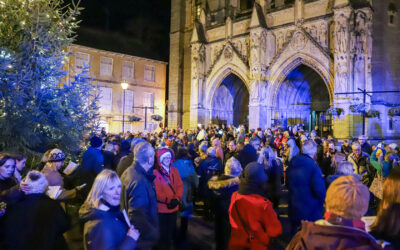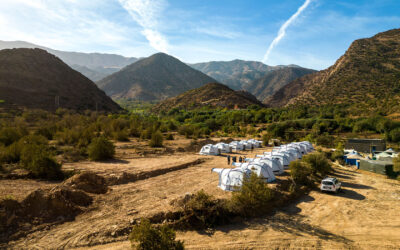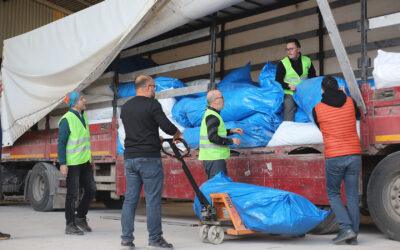A South Yorkshire Rotary club is one of a number of clubs across Great Britain and Ireland who are making financial contributions following the Australian bushfires.
The blazes which ravaged across tinder-dry land, killed at least 33 people, destroyed thousands of homes and affected more than 11 million hectares of land – comparable to the size of England.
The Sheffield-based Wortley Rotary has sent funds Australia using links established by current President, Philip Sherriff, with Kyabram Rotary in northern Victoria.
The club has sent £1,000 to Kyabram Rotary to help with relief efforts in the State.
The blazes which ravaged across tinder-dry land, killed at least 33 people, destroyed thousands of homes and affected more than 11 million hectares of land – comparable to the size of England.”
More than one billion animals are believed to have perished in the bushfires, which scorched large swathes of temperate forest and grassland.
Philip’s wife, Jenny Sherriff, has been busy making cloth pouches with triple loose linings which are desperately needed for the care of small wild animals, such as koalas and wallabies. A first parcel of 30 pouches has already been dispatched.
Two former Wortley Rotarians are members of the Kyabram club, Mark and Emma Cooke, who kept the club in touch with the state of affairs in the region.
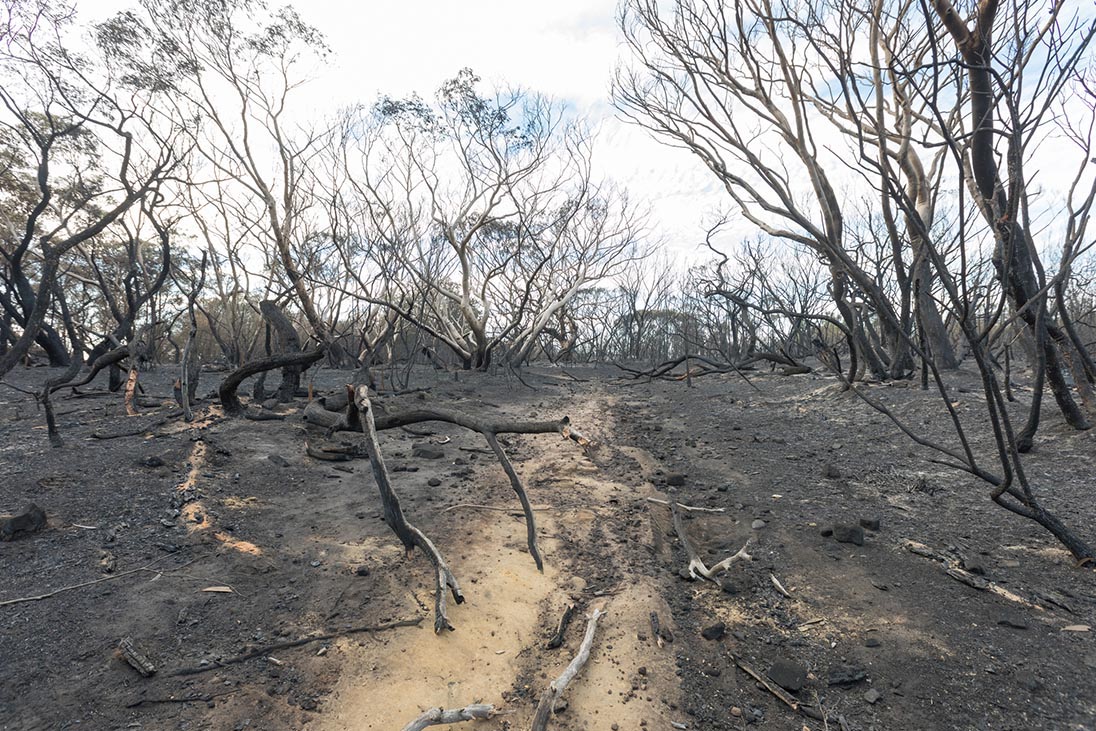

Fires have been burning across the country for over 4 months, and to date have destroyed over 63,000 sq km of bush, forest and parks.
They wrote recently: “The gargantuan bushfires have burned at least 17.9 million acres, destroyed more than 3,000 homes, and killed at least 28 people since September.
“The choking smoke from these blazes is causing a health crisis and has literally circled the world.
“We are all fine, with the fires being approximately 100 miles to the east of us, although we are constantly surrounded by thick smoke, with visibility today down to around 300 metres.
The gargantuan bushfires have burned at least 17.9 million acres, destroyed more than 3,000 homes, and killed at least 28 people since September.”
“We shouldn’t complain, as at least we don’t have fires at our doorstep, but that could all change over the coming weeks.
“The most worrying thing is that dry lightning can start fires so quickly. Thinking back to 2009, some of the fires can travel at 60mph. So we are still on our guard, and have our caravan and four-wheeled drive vehicle ready to leave.”
Noel Trevaskis, a past Rotary International Director, lives at Tura Beach in New South Wales. “The fires have been horrendous right across Australia this year with many of the fires burning for a few months,” he reflected.
“Around Christmas the fires started to build up closer to us, south and west. Fires then started in the north of us. We were advised that the fires were going to get bigger and more ferocious after New Year.
🇦🇺 @RotaryGBI has opened a Disaster Recovery Trust appeal following the ferocious fires which have swept across Australia.
This is a non-emergency appeal to support the medium to long term recovery of communities.https://t.co/KWdvIb4yFy#AustralianWildFires #Australiabushfire
— Rotary GB & Ireland (@RotaryGBI) January 7, 2020
“New Year’s Eve turned dark about midday with the smoke from the fires.
“My wife Sue, who works as a nurse at a nursing home 34 kilometres south of us in the small town of Eden, received a text message at 10pm on New Year’s Day advising that they were going to start evacuating the residents of the nursing home at 7am the next morning, as Friday and Saturday were predicted to be extremely bad days, with high winds and temperatures.
“She and four other nurses, evacuated 60 residents to nursing homes in Canberra. This would be normally be a three hour journey, but it took them seven hours to get there.”
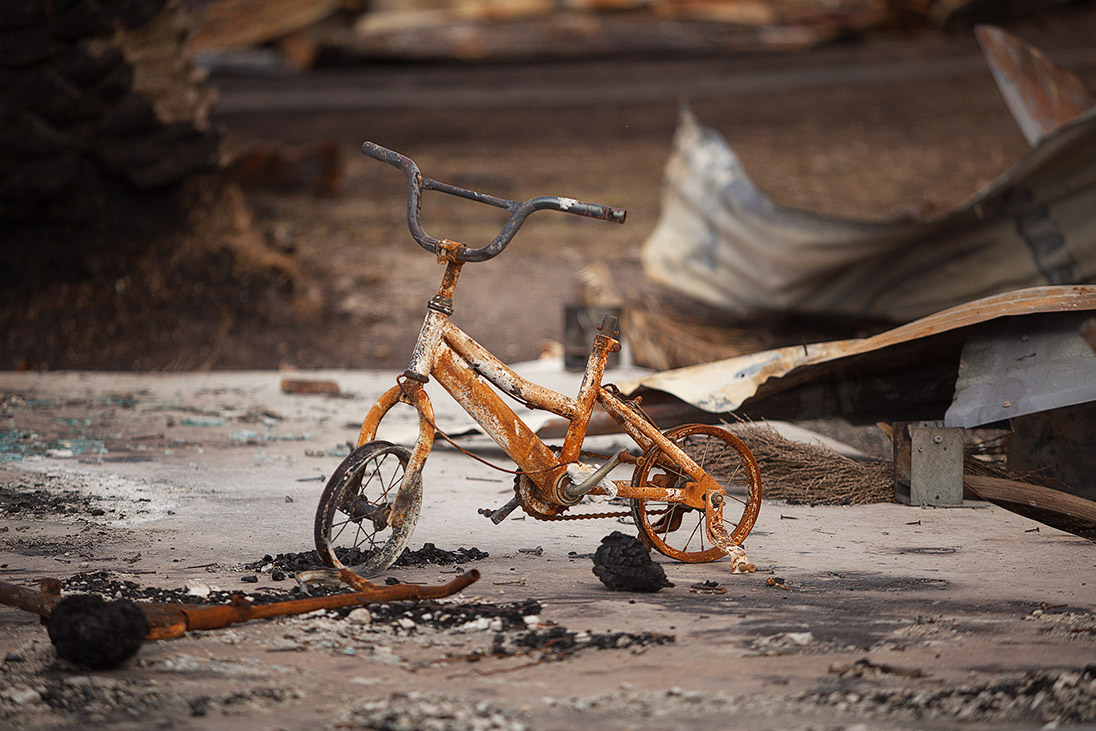

The choking smoke from these blazes is causing a health crisis and has literally circled the world.
Noel said that they were cut off from any safe roads to leave the Bega Valley, and they decided to stay to defend their home.
“The main concern was embers coming from the fires landing and burning the mulch on the garden, or getting in the gutters of the house,” he said.
“I spent the Thursday after New Year’s Day hosing down the house, blocking the downpipes and filling the gutters with water. I had three hoses on standby to put out any embers.
“We did have embers and a lot of ash come over our house, but thankfully the embers were dead.
I spent the Thursday after New Year’s Day hosing down the house, blocking the downpipes and filling the gutters with water. I had three hoses on standby to put out any embers.”
“I had valuable documents and family photos packed in the car and parked it at the golf club car park in case the house caught fire.
“We are over the worst of it now. The devastation to our forests and farmland has been incredible.
“I have seen fires in the past but nothing like this where it seems as if the whole country was on fire.
“People’s lives have been lost, countless number of livestock and millions of native wildlife have been killed; koalas have taken a real hit in northern New South Wales where it is estimated that over a third have been wiped out.
I have seen fires in the past but nothing like this where it seems as if the whole country was on fire.
“These fires have been devastating and have impacted everyone’s lives.
“However we will overcome these things and come back from this disaster.
“There have been some incredible stories of people helping each other and communities working together to overcome this disaster.
“It is still a beautiful country and our bush does recover from fires.”
Find out how you can help Australia recover from the bushfires here








